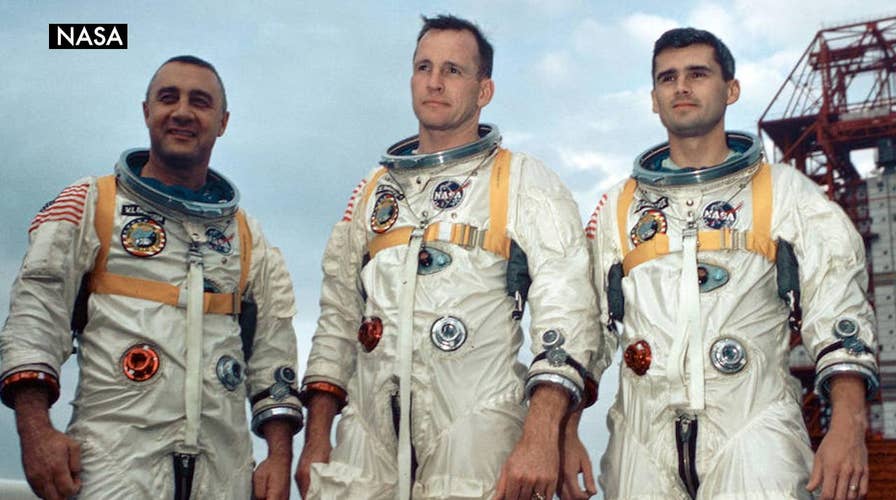NASA’s Parker Solar Probe marks new chapter in Cape Canaveral’s history
NASA’s audacious mission to the Sun’s corona is just the latest incredible launch from Cape Canaveral. This will mark a new chapter in the iconic site's history.
CAPE CANAVERAL, Fla. – All eyes will be on Cape Canaveral Air Force Station on Saturday for the launch of NASA’s Parker Solar Probe. The audacious mission to the sun is just the latest historic launch from the iconic site.
Sent up on a United Launch Alliance Delta IV Heavy rocket, Parker will travel closer to the sun's surface than any previous spacecraft. Hurtling through space at a mind-boggling 430,000 mph on its final orbits, the probe will also set a new speed record for an object of human design.
The Cape Canaveral launch site, of course, is no stranger to historic events.
NASA'S PARKER SOLAR PROBE: CAPE CANAVERAL PREPARES FOR EPIC MISSION TO THE SUN
“Cape Canaveral, to me, is like the epitome of the access to space point, where all of history has been made,” Tony Taliancich, director and general manager of launch operations at United Launch Alliance, told Fox News. “Because if you go back to the early days, this is where we had the initial testing and development of rockets that took us to space.”
Long synonymous with the U.S. space program, Cape Canaveral Air Force Station was selected as a missile test site in 1947. The first rocket launched from the base was the Bumper 2 in 1950.
Launch Complex 5/6, built in 1955 for the Redstone missile testing program, launched Alan Shepard and Freedom 7 on May 5, 1961, and Gus Grissom aboard Liberty Bell 7 on July 21, 1961, the National Park Service notes on its website.
“Launch Complex 26 launched Explorer I, the first U.S. satellite, on Jan. 31, 1958, and was the site of the launch of primates Ham, Gordo, Able and Baker in tests that paved the way for Alan Shepard's Mercury flight,” it adds.
NASA'S PARKER SOLAR PROBE SET TO 'TOUCH THE SUN' ON HISTORIC MISSION
“There’s so much history here, if you go back through the Apollo program, the Mercury program, all of those programs, they developed and delivered for the world,” Taliancich said.
John Glenn’s Friendship 7 capsule launched from Cape Canaveral aboard a Mercury-Atlas rocket on Feb. 20, 1962. During the mission, Glenn became the first American to orbit the Earth.
“We had John Glenn leaving us from Space Complex 14 on an Atlas rocket and we’re actually launching astronauts again on an Atlas rocket in the near future,” Taliancich added.
SOLAR ECLIPSE, CRASHING SPACECRAFT, VOLCANOES AND MORE: BIGGEST SCIENCE STORIES OF 2017
The launch director notes that Cape Canaveral’s Space Launch Complex 34 has a special place in America’s space history. It's "where the initial astronauts from the Apollo program gave their lives trying to initiate the exploration of space,” he said.
Cape Canaveral Air Force Station was designated a National Historic Landmark by the National Park Service on April 16, 1984.
While Cape Canaveral has a storied past, Taliancich believes that there are important chapters still to be written for America and its outreach into space.
“It’s an exciting time, there’s so much going on,” he told Fox News. “Every part of what is happening in the industry is creating a greater awareness and understanding in the community of what space means to the world.”
Follow James Rogers on Twitter @jamesjrogers









































